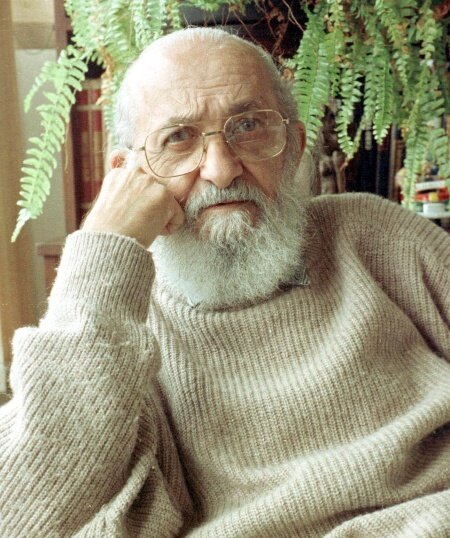
Inquiry-Driven Learning
Using questions to spark learning
“As educators use decolonization to challenge educational and cultural hegemony, we must also replace it with Indigenous perspectives and values that guided us for most of human history in ways that cultivate more peaceful, healthy and happy relationships in and with the world.”
The approach to teaching offered in this website uses quotations and pictures to invite deep dialogue as a means to co-learning about how we become human and sustain ourselves on a living planet. Brazilian educator, Paulo Freire, defined this inquiry-based co-learning paradigm as “praxis: reflection and action upon the world in order to transform it.” Freire’s work was highly influenced by the French West Indian scholar, Frantz Fanon who argued for “a mutual current of enlightenment and enrichment”.
Fanon and Freire’s co-learning work is both distinct from and related to many traditional ways of knowing. These ways of knowing are rooted in a wide range of practices that often include oral histories through storytelling by elders, mentor/apprentice relationships and reflections on direct experience. Asking questions has often been part of how elders transmit knowledge.
Each collection includes three questions for each quotation/image “code.” The intention of these dialogue codes is not to simplify by providing quick answers from any one oracle. Proven Sustainable™ is designed to welcome complex thinking and deepen understanding by inviting questions from a collective of co-learners. The questions are created to be self-reflective and dynamic, with each answer organically leading to the next set of questions.
“Our method (is) to be based on dialogue, which is a horizontal relationship between persons.
A with B = communication and intercommunication
Relation of “empathy” between two “poles” who are engaged in a joint search.
MATRIX: Loving, humble, hopeful, trusting, critical”
Some ideas for using Proven Sustainable materials:
We encourage educators to be fluid, flexible and creative in using these codes and questions, adapting your teaching practices to the needs and curiosities of your particular group.
For example, for use in a gathering with young media makers, you might choose a handful of the media literacy questions to invite reflection and action on whether and how to communicate traditional wisdom on digital platforms.
A community meeting to discuss land rights issues could use some of the text and image questions for the dialogue codes related to sovereignty to spark discussion about how other Peoples have considered these common concerns.
A social studies teacher might select two or three dialogue codes as a basis for constructivist media decoding using all three questions as a springboard to help students develop their own habits of inquiry.
Here are some use cases in the words of early reviewers:
“I’m working with my granddaughter on developing her writing skills. This site would be a great resource to engage her about alternative ways of being and knowing to her own.”
“I teach peace studies in an afterschool program, an African drum and dance ensemble. I could have each of my students share one dialogue code that they think represents the spirit of the ensemble to initiate discussion about why we study African traditions.”
“I can see passing this on to many different teachers at our school. The codes will be great prompts for dialogue in our social studies and English classes and especially our environmental studies/ecology program. The Farm to table group will also be interested.”
“I teach university and K-12 students and I would use this in my classes, especially my international studies, social work and anti-racism courses. I would also share on social media and with my friends and family who do decolonizing/anti-racism work.”


